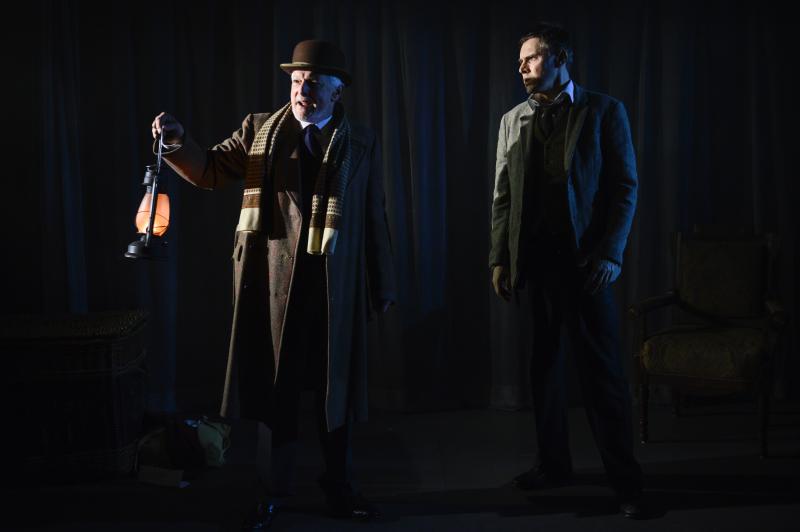Review: Long-Running West End Smash THE WOMAN IN BLACK Now Haunts The McKittrick Hotel
Stephen Mallatratt’s adaptation of Susan Hill's ghost story is the West End's second longest running production.
"We'll make an Olivier of you yet," an actor-for-hire says to his nervous client.
"I have no wish to be an Olivier," the fellow retorts.
"No, but for the sake of our audience, let us at least try."

When novelist Susan Hill penned her 1983 ghost story, The Woman in Black, the premise was that retired solicitor Arthur Kipps, prompted by a Christmas Eve gathering where family members are entertaining each other with ghost stories, starts writing out the story of an ectoplasmic encounter that has haunted him for decades.
Four years later, Stephen Mallatratt's stage adaptation, penned for two actors, premiered in a British pub, the set-up being that Kipps has completed his story - a quite imposing-looking stack of papers - and is receiving assistance from a professional actor to make him a better storyteller when he presents it at the next family gathering.
Feeling a demonstration is in order, the actor takes on the central role of the younger Kipps, sent to a creepy old seaside home to handle the affairs of its recently deceased resident. He instructs his client in taking on the numerous supporting roles.
Director Robin Herford's production opened in London in 1989 and it now the second longest running offering in West End history, after Agatha Christie's uncloseable THE MOUSETRAP.
The New York premiere matches David Acton (Kipps) with Ben Porter (the actor), both of whom have played their roles numerous times in Great Britain, but never opposite each other. Herford's new staging also returns the play to its pub setting, taking residence at The McKittrick Hotel's Club Car.
.jpg)
A long, slightly elevated area of the drinking establishment serves as the stage, with 150 chairs placed before it. Customers may purchase some choice British ales and other libations before the play and at intermission but be warned that there are no tables.
Details of the story will give away the haunting bits of stagecraft meant to make viewers leap from their seats, but let's just say that during his stay Kipps learns why the townsfolk won't go near the place.
But aside from the gasps and laughter elicited from the haunted doings, a great pleasure of the piece is watching the grand camaraderie between Acton and Porter, as the actor inspires his pupil to unlock his imagination and not just tell a story, but experience it fresh every time.
Reader Reviews


